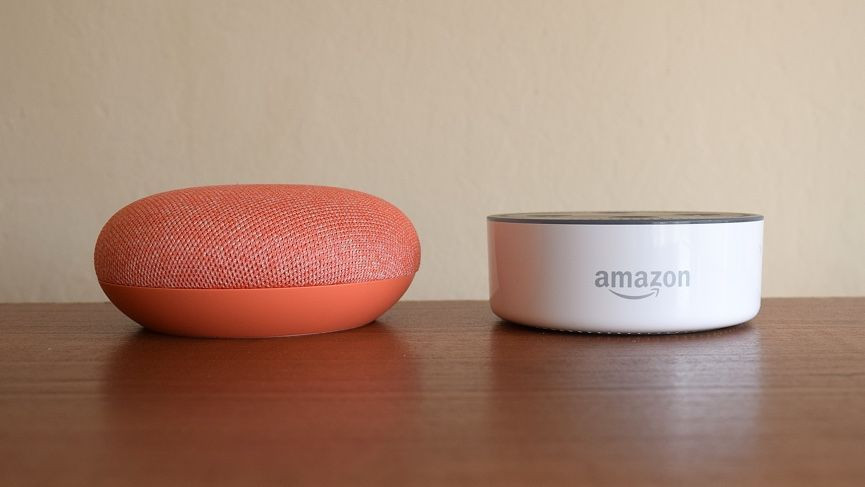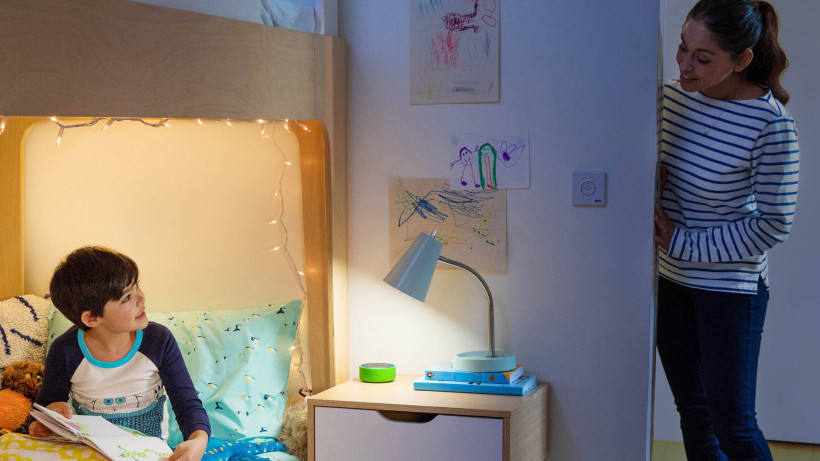Won't somebody think of the children?
Earlier this year, a group of child development and privacy advocates released a statement urging parents not to purchase the new Amazon Echo Dot Kids Edition, as it poses “significant threats to children’s well-being and privacy.” The same day, two lawmakers sent a letter to Amazon CEO Jeff Bezos asking what steps the company was taking to ensure the product would not negatively affect children’s development.
The same group – Campaign for a Commercial-Free Childhood (CCFC), a US coalition of healthcare professionals, educators, advocacy groups, and concerned parents – previously called on Mattel to stop production of Aristotle, an Amazon Echo-type listening and talking device for babies and young children. In October 2017, Mattel announced it had cancelled plans to sell the product as a result of the backlash.
Read this: My two-year-old thinks Alexa is an all-powerful god
Despite the outcry from groups like the CCFC, few research studies have focused on the relationship between kids and home-based voice assistants. Are Amazon Echo and Google Home high-tech educational tools or marketing devices designed to spy on families? Do they truly pose a threat to our children? Many questions like these still remain unanswered, about the impact of such technology on early learning, development and wellbeing.
“Technology can be very powerful and also a useful tool for children, but there are certain concerns to be mindful of,” said Kaveri Subrahmanyam, a developmental psychologist at California State University, Los Angeles. “I don’t think technology is the Big Bad Wolf, but limits are good to set, and parents have to be mindful of both their children’s media use and their own media use.”
If you are rude to somebody, there is generally retribution
Subrahmanyam studies young people’s use of digital media and its effects on learning and development. While she hasn’t looked at voice assistants specifically, her research has explored the risks and opportunities afforded by the internet, social media, and digital screen devices. For instance, the cognitive impact of digital screen media depends on the age of the child, the kind of programming, the social context of viewing, and the particular kind of interactive media (eg computer games versus television).
For children younger than two years old, television viewing has mostly negative associations for language and executive functioning skills, which includes attentional control, cognitive inhibition, and working memory. For preschool-aged children, television viewing can have positive outcomes on cognitive development, especially with educational programming.
“As with the internet and other media, there are advantages and benefits for children when it comes to virtual assistants, such as information, learning, communication and social skill development,” said Pamela Hurst-Della Pietra, the founder and president of Children and Screens: Institute of Digital Media and Child Development. “But one question is whether they can promote good behaviour or bad behaviour in children.”

Pretty please?
Some parents have expressed worries that Alexa and other virtual assistants are conditioning their children to be rude. Because the devices don’t require social niceties like “please” and “thank you” to function, parent Hunter Walk fears that his Echo is “turning his daughter into a raging asshole.” In a 2016 blog post, the San Francisco-based tech investor requested a kid-mode where the Echo only responded to “Alexa, please…”
His prayers were answered when Amazon rolled out a new “magic word” feature that rewarded kids with positive reinforcement when saying “please.” Similarly, Google unveiled a Pretty Please feature for the Home smart speaker that will respond positively to polite phrasing.
“I don’t honestly think that children think these devices are life-like objects, but they are still life-like in their interactions. If you are rude to Alexa, can you hurt her feelings?” said Subrahmanyam. “If you are rude to somebody, there is generally retribution. Are kids likely to transfer the learning from these interactions to face-to-face settings?”
There’s a tendency to anthropomorphise these virtual assistants
She notes that sometimes children who grow up in cultures with a wide social status differential can be seen acting disrespectful to “the help.” Because their parents’ maids and gardeners have a lower social status and cannot retaliate without losing their job, such privileged children may exhibit little regard for politeness and respect.
A major difference between a child watching television versus interacting with a voice assistant is the personification of the device. Some experts warn that encouraging children to form pseudo-bonds with devices undermines their ability to form healthy relationships with people.
“Children heretofore were looking to their parents and grandparents for answers to various questions, and there’s a bond that develops as a result,” said Hurst-Della Pietra. “Because there’s a tendency to anthropomorphise these virtual assistants, families need to be very thoughtful about how they are using them if they decide to bring them into their homes.”
Overall, Subrahmanyam believes that some concerns about home-based voice assistants from parents and child development experts are legitimate. For instance, a feature that entertains children when they say the phrase, “Alexa, I’m bored” makes her cringe. She reminisces about the days that kids occupied themselves with their own imagination and creativity.
“When I see students today, there’s never a time when you see kids without their eyes on a screen. When I was young, you looked out the window. You struck up random conversations with people. You had interesting interactions with strangers,” she said. “I just wonder how much of that is lost when you have technology always ready to entertain you.”





